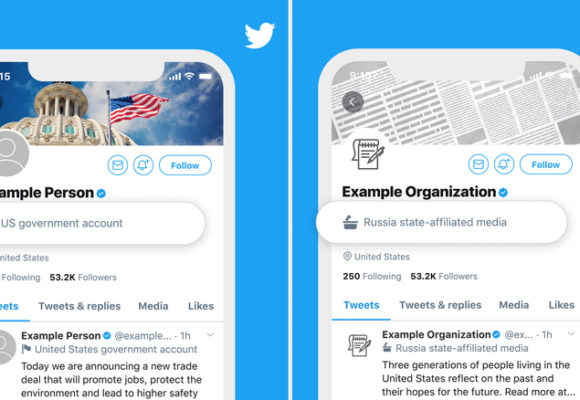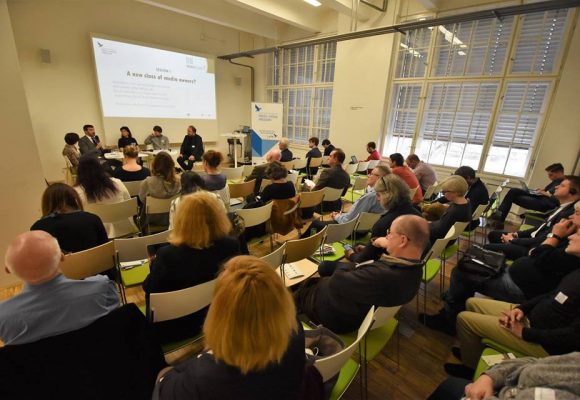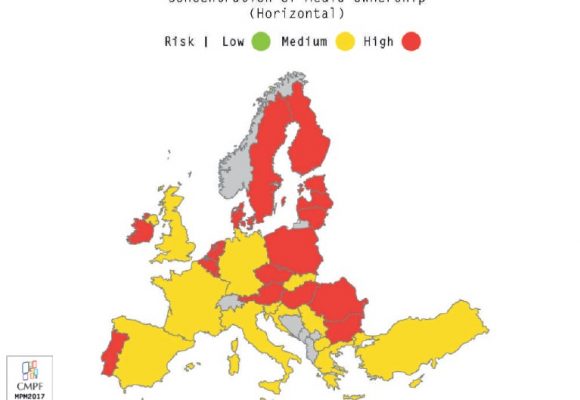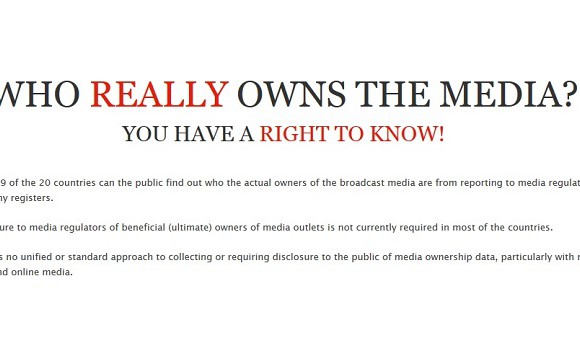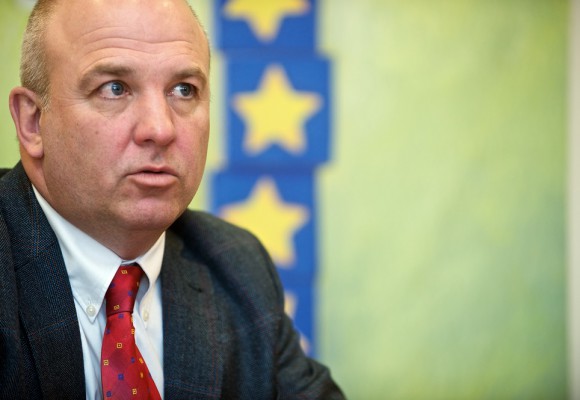#media ownership
Transparency of media ownership: Twitter started to label some “state-affiliated” media
Twitter introduced on Thursday new labels to identify accounts belonging to government officials and senior staff of state-backed media. Key government officials such as foreign ministers, ambassadors and official spokespeople will receive the label, as will accounts belonging to “state-affiliated” media entities, their editors-in-chief and their senior staff, Twitter said. The European Federation of Journalists (EFJ) is in favor of transparency of ownership of all media, but is wary of labelling initiatives that do not appear transparent or that do not seem to be based on objective criteria. The Twitter label appears as part of an account’s bio and is…
1st Regional Journalists Days
The right to freedom of expression is largely declining in South-East Europe. Attacks against journalists are on the rise, followed by high impunity rates, non-transparent media financing, self-censorship and bad implementation of freedom of expression standards. Journalists and media workers are at the core of these trends and practices. In order to empower journalists to deal with increased number of challenges, Civil Rights Defenders is organising the 1 st Regional Journalists Days. The event is envisaged as an open space for discussing the challenges ahead for journalists, citizens’ journalists and media workers that are working in increasingly hostile environments. In…
Newsocracy: Transparency in media ownership in focus
The damaging effects of media ownership concentration in Europe was the topic of the Newsocracy conference held in Prague, Czech Republic, on 14 December, organised by the European Centre of Press and Media Freedom (ECPMF). The conference highlighted the importance to develop both transparency and pluralism in media ownership to guarantee media as a public good. “The conference turned out to be a wake up call. Experts showed how the lack of transparency in ownership influences media policy in many European countries – in the EU in general, in Central and Eastern Europe in particular”, said European Federation of Journalists’ (EFJ)…
Risks for media pluralism and safety of journalists are increasing across Europe
The Media Pluralism Monitor (MPM) has examined 28 European Union Member States as well as three candidate countries: Turkey, Serbia and Macedonia. The results of this second EU-wide implementation of the MPM show either general stagnation or deterioration in all of the major areas encompassed by the MPM and confirm that no country analysed is free from risks to media pluralism. The Centre for Media Pluralism and Media Freedom (CMPF), based in Florence, has just published its 2017 Media Pluralism Monitor reports (#MPM2017). Year 2017 was marked by events that have had a significant impact on media freedom and media…
Newsocracy: Media ownership concentration in Czech Republic and Europe
Media ownership concentration is affecting more and more European countries, and therefore every European media consumer. Assess with us if and to what extent economical agendas and conflicts of interest undermine the independence of the information we consume every day. The ECPMF’s NEWSOCRACY event in Prague focusses on new types and shapes of media ownership and on the implications media ownership concentration has on local and regional journalism. Through hands-on knowledge exchange and expert sessions we aim to come up with constructive approaches to promote and strengthen media plurality. The President of the EFJ Mogens Blicher Bjerregård will moderate session…
#Newsocracy III – La concentración de medios en España y Europa
#newsocracy III brings together policy makers, academics, journalists, citizens and existing initiatives for transparency of media ownership structures to discuss media ownership concentration in Europe and Spain. The event is hosted by the ECPMF, PDLI and OBCT. —————– El European Centre for Press and Media Freedom (ECPMF), la Plataforma en Defensa de la Libertad de Información (PDLI) y el Osservatorio Balcani e Caucaso Transeuropa (OBCT), te invitan a #NEWSOCRACY III, la jornada sobre concentración mediática en Europa que reunirá a políticos, académicos, periodistas e iniciativas por la transparencia en la propiedad de los medios. Discutiremos sobre acontecimientos recientes, los peligros de la situación actual y posibles soluciones. Visita la web…
EAO Conference: Media Ownership in Europe
The European Audiovisual Observatory (EAO), part of the Council of Europe in Strasbourg, organises a major free entry conference in Brussels every autumn. Target groups for this conference are media industry professionals, decision makers and interest groups, regulators, representatives from the European institution, academics and researchers and press. This year’s conference, the third edition of this highly successful event, will focus on the issue of media ownership. The Observatory will explore the dangers and the opportunities linked to the question of media concentration by presenting two major new reports: the first a market study of media concentration in Europe and the second a legal…
Who owns the media?
Who owns the media? Whose interest do they serve? The answers to these questions are difficult reach. To improve media ownership transparency, the European Federation of Journalists (EFJ) has endorsed a campaign launched by Access Info Europe for transparent and easy access to information about media ownership. According to Access Info Europe, a non-governmental organisation promoting access to information, only 9 European countries can the public find out who the actual owners of the broadcast media are from reporting to media regulators or to company registers. This is because disclosure to media regulators of beneficial (ultimate) owners of media outlets…
Bulgaria: progress needed to improve media freedom
At the end of a three-day visit to Bulgaria, Nils Muižnieks, Council of Europe Commissioner for Human Rights, said today he was concerned at the insufficient transparency of media ownership and financing and lack of action against media concentration.This has reportedly resulted in a media landscape worryingly characterised by many outlets serving few interests. “Genuine media pluralism is the institutional guarantee for the fulfillment of the right to receive and impart information and the authorities must take steps to secure it”, said Nils Muižnieks. Referring to the recent imposition of high fines by the Bulgarian financial supervision authority on media reporting on companies’ financial…

